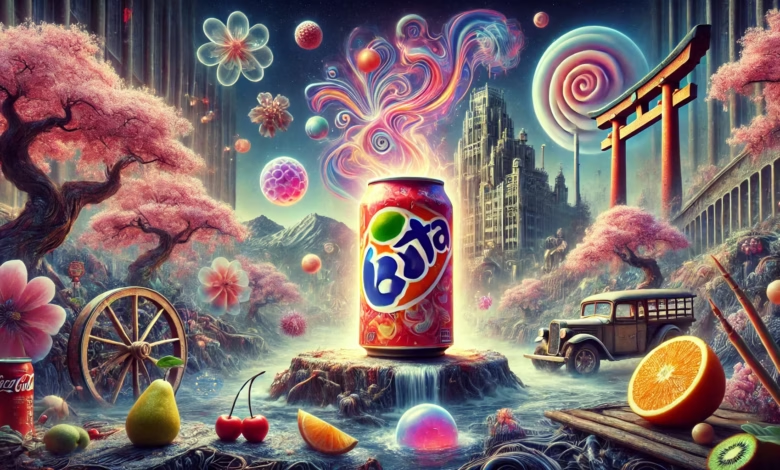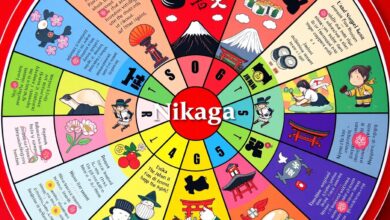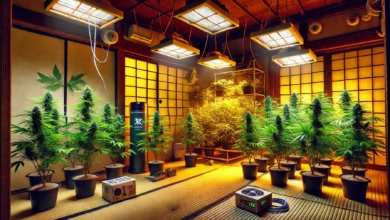Popular Soda Banned in Japan & EU: What Is It?

Many popular sodas in the US are banned in other countries. This is because of ingredients that are not safe for people to drink. The European Union and Japan have banned Gatorade because it has brominated vegetable oil. This has made people curious about which sodas are banned in Japan and the EU.

Key Takeaways
- The European Union and Japan have banned certain sodas due to harmful ingredients like brominated vegetable oil.
- Drinks like Mountain Dew, containing BVO, have led to bans in Japan, the Netherlands, and the EU, sparking concerns about what popular soda is banned in Japan and the European Union.
- Titanium dioxide, found in products like Great Value Wild Strawberry Drink Mix, is banned in the EU, highlighting the differences in food safety regulations between countries.
- Brominated vegetable oil is banned in many countries, including India, Japan, and nations of the European Union, due to potential health risks associated with banned soda in Japan and banned soda in EU.
- The FDA is reviewing regulations on food additives, considering bans on agents found to cause cancer in humans or animals, which may impact the availability of certain sodas in the US.
- Major soda companies like PepsiCo and Coca-Cola have been phasing out BVO from their products, opting for suitable alternatives to maintain the tangy taste in citrus drinks.
- The use of artificial food coloring has increased over five times since the 1950s, according to the FDA, with potential health concerns linked to artificial food dyes, prompting questions about what popular soda is banned in Japan and the European Union.
Understanding What Popular Soda is Banned in Japan and the European Union
The popular soda banned in Japan and the European Union has sparked a lot of talk lately. The main reason for this ban is the presence of brominated vegetable oil (BVO) in these drinks. BVO is used to mix oil and water in citrus-flavored sodas, but it has been linked to health problems.
Citrus-flavored sodas with BVO are banned in several countries, including Japan and the European Union. The popular soda banned in EU countries also includes those with Yellow 5, which can cause serious side effects. In Japan, the ban on soda banned in Japan and EU has been in place for years. Many manufacturers have changed their recipes to meet local laws.
- BVO has been linked to negative health effects, including headaches and memory loss.
- The European Union and Japan have banned the use of BVO in food and beverages.
- Some manufacturers, like PepsiCo, have pledged to remove BVO from their products.
The ban on popular soda banned in Japan and the European Union is a big step for public health. By knowing why this ban exists, people can make better choices about what they buy and eat.
The Science Behind the Ban Decision
The ban on certain sodas in Japan and the EU was due to BVO safety concerns. BVO is found in many citrus-flavored drinks. It can build up in fat and affect the thyroid gland, leading to health issues. This has led many countries, like Japan and the EU, to ban BVO in food and drinks.
Research has been key in making these decisions. A UK study in the 1970s showed BVO builds up in human tissues. It linked high levels to heart and behavioral problems in animals. Recent studies have also shown BVO’s toxicity to the thyroid gland, which controls important bodily functions.
Because of this, big soda companies like PepsiCo and Coca-Cola have stopped using BVO. The japan eu banned soda trend is also influenced by the FDA’s rules. The FDA limits BVO to 15 parts per million in citrus drinks and has questioned its safety. This has made many wonder which sodas are banned in Japan and the EU.
- Animal studies showing BVO’s impact on fat tissues and thyroid function
- A UK study linking BVO to heart and behavioral issues
- The FDA’s restrictions on BVO and its GRAS classification
| Country | BVO Status |
|---|---|
| Japan | Banned |
| EU | Banned |
| United States | Restricted use |
Japanese Regulatory Framework and Enforcement
Japan has a strict rule for food additives, like those in soft drinks banned in Japan EU. They banned BVO and Red 40, used in some sodas. This is to keep Japanese consumers safe and healthy.
The government closely watches certain ingredients, including some in energy drinks. So, companies have changed their Japanese products. Now, many soft drinks use natural ingredients instead of artificial ones.
Specific Components Under Scrutiny
The Japanese rules aim to protect people from harmful additives. Some key ingredients being watched include:
- BVO: a synthetic chemical used in some soft drinks
- Red 40: a food dye linked to potential health problems
- Certain energy drink components: which have been linked to adverse health effects
These banned ingredients are found in soft drinks banned in Japan & EU. Japan strictly controls their use. Companies that don’t follow these rules face penalties.
Impact on Local Markets
The ban on certain ingredients has changed Japan’s markets. Many drink companies have had to change their formulas. Now, they use more natural ingredients and less artificial ones.
Japanese people like the ban, choosing natural and organic drinks over artificial ones. The ban has also made people want soft drinks without banned ingredients, like banned soda in Japan.
European Union’s Stance on the Beverage
The European Union has strict rules on some soda ingredients. This means some banned soda in eu items, like titanium dioxide, are off-limits. They follow the precautionary principle, putting safety first. The European Food Safety Authority helps make sure all foods, including popular soda banned in eu, are safe.
Some banned ingredients in the EU include:
- Titanium dioxide, which is harmful and might cause cancer
- Butylated Hydroxyanisole (BHA) and Butylated Hydroxytoluene (BHT), linked to cancer
- Azodicarbonamide, which can turn into harmful substances
The EU’s ban has changed the soda industry. Companies now make more natural products to meet rules. This change also comes from what people want, as they learn about health risks from certain ingredients.

The EU’s rules on banned soda in eu and other ingredients are a good example for others. They show how important it is to put safety and openness first in food and drinks. As the EU keeps setting high food safety standards, others might follow. This could lead to a world with cleaner, healthier products.
Health Concerns and Scientific Studies
The what popular soda is banned in japan and the european union has raised health concerns. This is because of brominated vegetable oil (BVO). Research shows BVO can build up in fat and might affect the thyroid.
The FDA has decided to ban BVO after toxicology studies.
Some important findings from these studies are:
- Long-term exposure to BVO might lead to bromism. This disease causes memory loss, tremors, and slurred speech.
- BVO has been connected to heart and behavioral problems in animals.
- The European Union and Japan have banned BVO in food and drinks.
The soda banned in japan and eu has led to a move towards safer options. Natural stabilizers like ester gum and sucrose acetate isobutyrate (SAIB) are being used instead. As rules get stricter, the industry is focusing on cleaner labels and clearer ingredient sources.
Many big drink brands have stopped using BVO because of health risks. The FDA’s ban on BVO is a move towards safer and more effective stabilizers.
| Country/Region | BVO Status |
|---|---|
| United States | Banned as of August 2025 |
| European Union | Banned since 2008 |
| Japan | Banned since 2010 |
Manufacturer’s Response and Global Market Impact
The ban on certain sodas in Japan and the EU has made manufacturers rethink their recipes. Big names like PepsiCo and Coca-Cola Co. have stopped using brominated vegetable oil (BVO) in their drinks. This change is due to worries about BVO’s health effects, like thyroid problems.
Now, people are looking for new drinks to replace traditional sodas. The which soda is banned in japan and eu question is on everyone’s mind. Many brands have removed BVO from their products. Here are some key changes:
- They’ve replaced BVO with natural sweeteners and flavorings.
- They’ve also cut down on sodium in some sodas.
- They’ve introduced new, BVO-free versions in some markets.
These updates show how companies are adjusting to new rules and what people want. The economic effects of these changes are big, affecting costs and market share. Yet, many see it as a chance to make better products, not a problem.

In the US, not many drinks have BVO anymore because of these changes. The FDA banned BVO to keep food safe. They’re focusing on removing harmful additives. As the market keeps changing, we’ll see even stricter checks on food additives to keep our food safe.
| Country | Banned Ingredients | Reason for Ban |
|---|---|---|
| Japan | BVO | Potential health risks |
| EU | BVO | Potential health risks |
| US | BVO | Potential health risks |
Status in Other Global Markets Including the United States
The ban on a popular soda in Japan and the EU has sparked worldwide interest. In the United States, the FDA has banned BVO. California will ban products with BVO starting in 2027. This follows the EU’s ban in 2008 and Japan’s in 2010.
Other countries have also banned BVO. The UK did it in 1970, and India in 1990. The FDA’s ban in 2024 was a long time coming, over 50 years after its dangers were first noted. People should check labels of fruit-flavored drinks for BVO, as it’s still in some.
Some big brands have already ditched BVO. PepsiCo vowed to remove it from all products in 2016. Yet, Mountain Dew and Gatorade still had it after that. The USDA’s database shows about 600 products might still have BVO, showing we need to stay alert.
As more people learn about health risks from certain ingredients, countries are acting. Banning BVO is just one step. It will be interesting to see how other countries follow in the future.
Conclusion: Future Implications and Global Beverage Standards
The bans on popular soda in Japan and the EU show a shift in global standards. The FDA in the US is also looking into food additives. They aim to make the approval process better and possibly ban harmful ingredients.
Food safety and health concerns are on the rise. This means manufacturers will have to change their products to meet stricter rules. This could lead to more consistent and safe beverage standards worldwide.
More people want healthier, natural drinks. This trend is changing the soda industry. Brands will have to come up with new, safer options to keep up with consumer demands.
FAQ
What popular soda is banned in Japan and the European Union?
The soda banned in Japan and the European Union contains brominated vegetable oil (BVO).
Why is this soda banned in Japan and the EU?
Health concerns led to the ban. Studies suggest BVO might build up in fat and affect the thyroid.
When were the bans on BVO-containing sodas implemented in Japan and the EU?
Japan banned BVO earlier. The EU followed later, based on the European Food Safety Authority’s advice.
What is the current status of the bans on BVO-containing sodas in Japan and the EU?
The bans are still in place. Companies have removed BVO from their products to meet the rules.
How have major soda manufacturers responded to the bans on BVO in Japan and the EU?
Big soda makers like PepsiCo and Coca-Cola Co. are removing BVO worldwide. This is in response to bans and consumer worries.
What is the status of BVO-containing sodas in the United States?
The FDA has also banned BVO in the US. This brings US rules in line with Japan and the EU’s.
Source Links
- 7 Drinks And The Reasons They Were Banned In Other Countries – The Daily Meal – https://www.thedailymeal.com/1444202/drinks-banned-in-other-countries/
- 5 American Food Ingredients That Are Banned in Europe and Other Parts of the World – https://organicsodapops.com/blogs/news/american-food-ingredients-that-are-banned-in-europe-and-other-parts-of-the-world
- FDA to Finally Outlaw Soda Ingredient Prohibited Around The World – https://www.sciencealert.com/fda-to-finally-outlaw-soda-ingredient-prohibited-around-the-world
- 7 Drinks And The Reasons They Were Banned In Other Countries – https://www.yahoo.com/lifestyle/7-drinks-reasons-were-banned-132544310.html
- BVO: Why the FDA might finally ban brominated vegetable oil – https://www.cspinet.org/cspi-news/bvo-why-fda-might-finally-ban-brominated-vegetable-oil
- The FDA Outlawed a Soda Ingredient Banned Around The World. Here’s Why. – https://www.yahoo.com/news/fda-outlawed-soda-ingredient-banned-221447506.html
- The FDA Outlawed a Soda Ingredient Banned Around The World. Here’s Why. – https://www.sciencealert.com/the-fda-outlawed-a-soda-ingredient-banned-around-the-world-heres-why
- FDA proposes ban on food additive found in fruity sports drinks and sodas – https://www.nbcnews.com/health/health-news/fda-proposes-ban-food-additive-found-fruity-sports-drinks-sodas-rcna123371
- PDF – https://apps.fas.usda.gov/newgainapi/api/report/downloadreportbyfilename?filename=Agricultural Biotechnology Annual_Tokyo_Japan_6-4-2014.pdf
- Official Journal L 274/2022 – https://eur-lex.europa.eu/legal-content/EN/TXT/HTML/?uri=OJ:L:2022:274:FULL
- REGULATION (EU) 2019/ 787 OF THE EUROPEAN PARLIAMENT AND OF THE COUNCIL – of 17 April 2019 – on the definition, description, presentation and labelling of spirit drinks, the use of the names of spirit drinks in the presentation and labelling of other – https://eur-lex.europa.eu/legal-content/EN/TXT/PDF/?uri=CELEX:32019R0787
- Why Are Some Food Additives That Are Banned In Europe Still Used in the U.S.? – https://www.everydayhealth.com/diet-nutrition/why-are-some-food-additives-that-are-banned-in-europe-still-used-in-the-us/
- Controversial soda ingredient has finally been banned by the FDA – https://www.earth.com/news/controversial-soda-additive-has-been-banned-by-the-fda/
- FDA Moves To Outlaw Brominated Vegetable Oil: What To Know About The Additive Banned In Dozens Of Countries – https://www.forbes.com/sites/maryroeloffs/2023/11/02/fda-moves-to-outlaw-brominated-vegetable-oil-what-to-know-about-the-additive-banned-in-dozens-of-countries/
- Goodbye brominated vegetable oil – https://cen.acs.org/food/food-ingredients/Goodbye-brominated-vegetable-oil/102/i21
- 11 Food Ingredients Banned Outside the U.S. That We Eat – https://abcnews.go.com/Lifestyle/Food/11-foods-banned-us/story?id=19457237
- Why did the FDA finally ban this controversial soda ingredient ? – https://dailygalaxy.com/2024/07/why-did-the-fda-finally-ban-this-controversial-soda-ingredient/
- BVO: The FDA finally bans brominated vegetable oil – https://www.cspinet.org/cspi-news/bvo-fda-finally-bans-brominated-vegetable-oil
- 15 Typical U.S. Foods That Are Actually Banned in The Rest of the World – https://www.cookist.com/15-typical-u-s-foods-that-are-actually-banned-in-the-rest-of-the-world/
- Health Safety of Soft Drinks: Contents, Containers, and Microorganisms – https://pmc.ncbi.nlm.nih.gov/articles/PMC4324883/
- Energy Drink Consumption in Europe: A Review of the Risks, Adverse Health Effects, and Policy Options to Respond – https://pmc.ncbi.nlm.nih.gov/articles/PMC4197301/
- Scariest Thing This Halloween? The Food in Your Pantry – Earth Day – https://www.earthday.org/scairest-thing-thing-halloween-the-food-in-your-pantry/



